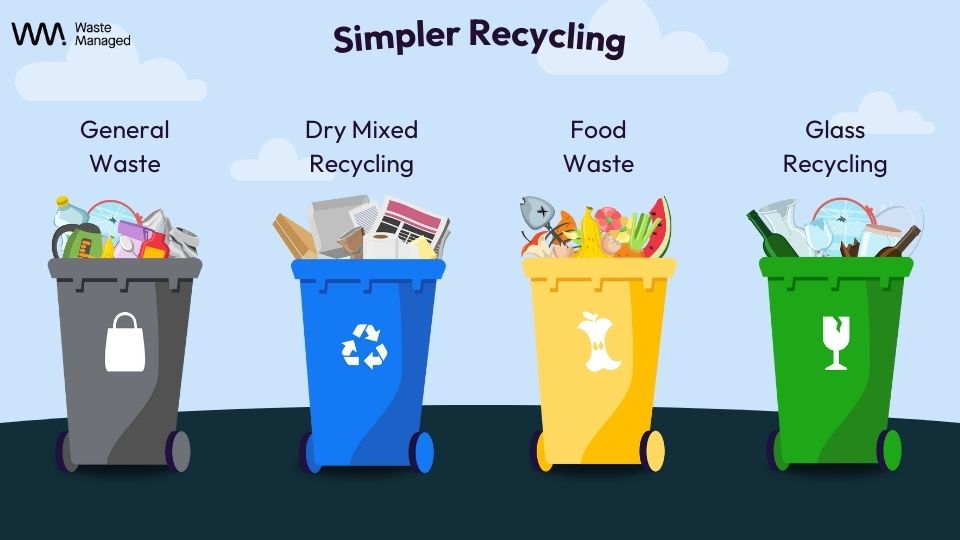
A Quick Summary
- Simpler recycling is a new legislation that is standardising recycling across England.
- All waste collectors and councils will now collect the same materials:
– General Waste
– Dry Mixed Recycling
– Food Waste
– Glass Waste - All businesses with 10+ employees must have at least these four bins.
- Deadline: 31st March 2025
Simpler Recycling is a UK government initiative aimed at making recycling easier and more consistent across England.
Introduced by DEFRA (The UK government’s Department for Environment, Food, and Rural Affairs) the plan standardises waste collection processes to improve recycling rates and reduce landfill usage.
This guide covers everything businesses need to know, from key changes and timelines, to the benefits and potential challenges of compliance.
Table of Contents
- What is Simpler Recycling legislation?
- Key changes under Simpler Recycling legislation
- Timeline for Implementation
- Why is Simpler Recycling being introduced?
- How does Simpler Recycling legislation impact businesses?
- Benefits of Simpler Recycling legislation
- How to prepare for Simpler Recycling legislation
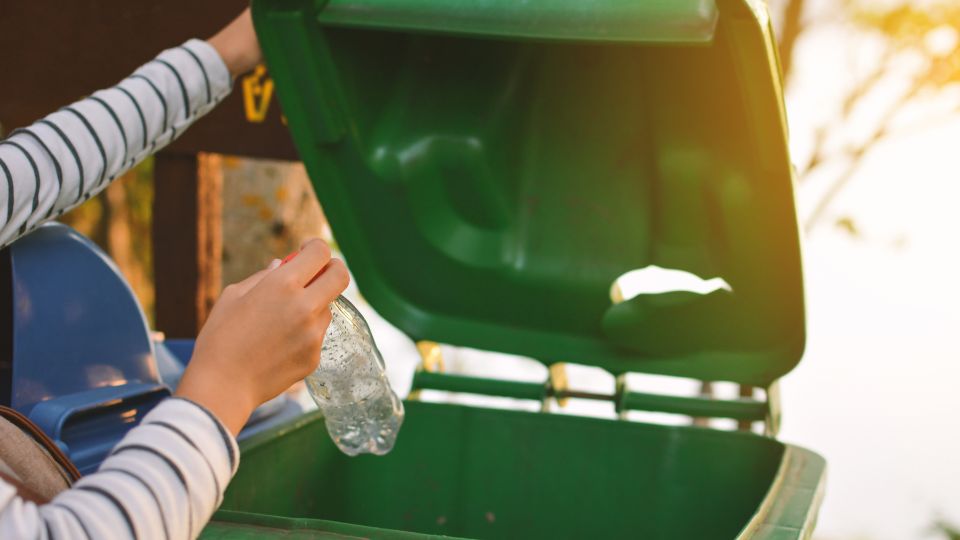
What is Simpler Recycling legislation?
The Simpler Recycling legislation is a UK government-led reform designed to unify waste collection across all local authorities in England.
By standardising what materials are collected and how, it aims to eliminate the “postcode lottery” of recycling practices, where different councils have varying rules about what can and cannot be recycled.
Key objectives include:
- Making sure that all businesses have the same regulations in the way they separate their recyclable waste.
- Ensuring that food waste recycling increases with mandatory food waste bins.
- Providing businesses with clear guidelines to separate waste at the source.
Simpler Recycling affects all businesses across the UK, no matter which waste collector is responsible for collecting your waste.
The ultimate goal is to make recycling accessible and straightforward, leading to higher participation rates and better environmental outcomes.
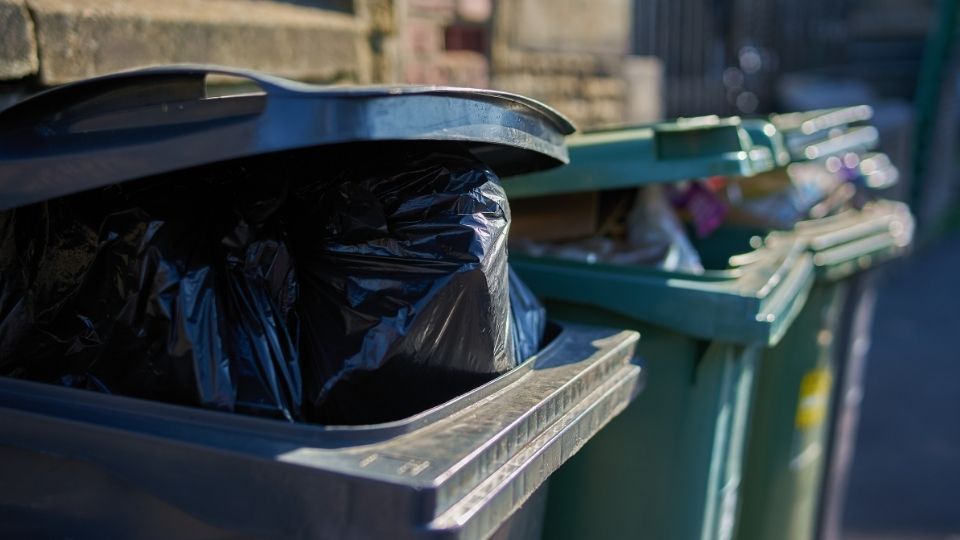
Key changes under Simpler Recycling legislation
Uniform Recycling Materials
All businesses with over 10 employees must now set up waste collections for all recyclable waste.
This includes dry mixed recycling (paper, cardboard, plastic, aluminium), food waste and glass recycling.
Mandatory Weekly Food Waste Collections
Businesses with over 10 employees must now separate all food waste into a food waste bin.
This change is expected to significantly reduce food waste going to landfill and the associated methane emissions.
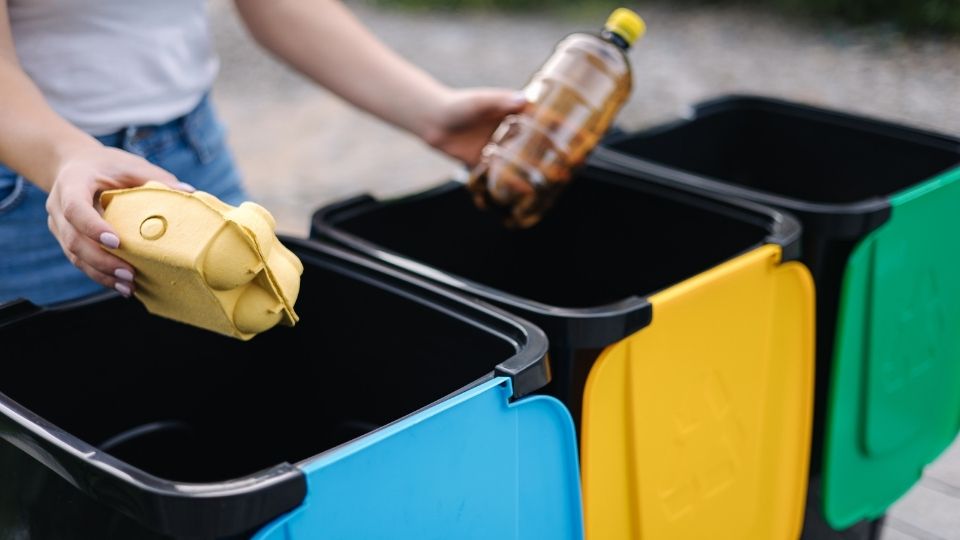
Timeline for Implementation
| Date | Action |
|---|---|
| 31st March 2025 | Businesses with 10+ employees must separate their waste into a minimum of four bins: 1) General Waste 2) Dry Mixed Recycling (paper, cardboard, plastic and aluminium) 3) Food Waste 4) Glass Bin |
| By March 2026 | Councils must offer weekly food waste collections to all households and non-domestic premises. |
| By 31st March 2027 | All businesses with any number of employees must adhere to new regulations. Households and smaller businesses must separate plastic films and flexible packaging. |
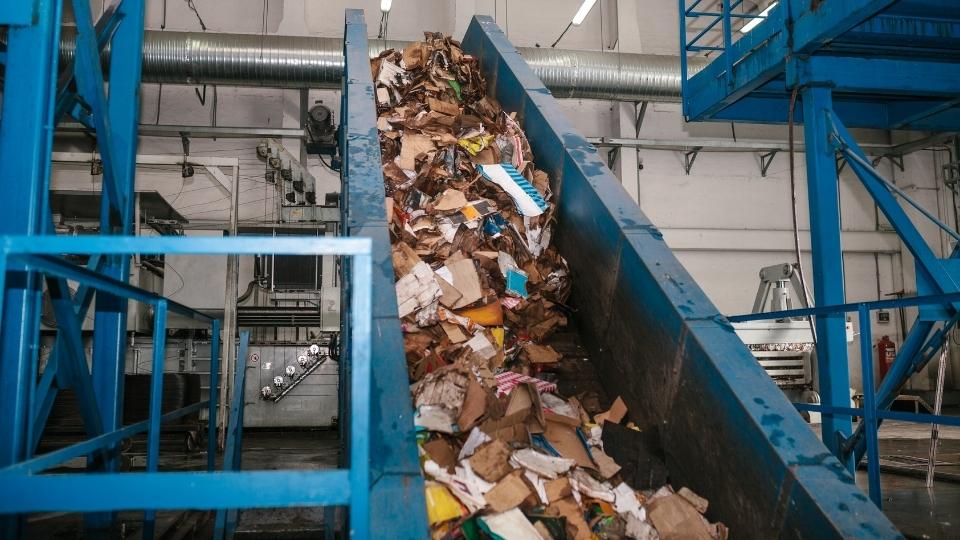
Why is Simpler Recycling being introduced?
Recycling rates in England have stayed stagnant in recent years, with confusion over council-specific rules contributing to low participation.
By creating a unified system, the government aims to:
- Improve Recycling Rates: Consistency makes it easier for everyone to recycle correctly.
- Reduce Landfill Use: Diverting more waste from landfills reduces greenhouse gas emissions.
- Support Circular Economies: Encouraging better recycling feeds materials back into production cycles.
How does Simpler Recycling legislation impact businesses?
Compliance Requirements
Businesses must adapt their waste management practices to include segregation of recyclable materials.
This involves:
- Providing separate bins for different materials – including a dry mixed recycling bin, food waste bin, and glass bin.
- Educating employees about proper waste disposal.
Increased Costs
While the reforms aim to streamline processes, businesses may face upfront costs such as:
- Purchasing additional bins or containers.
- Training staff on the new recycling requirements.
However, businesses that already segregate waste may experience minimal disruption.
Don’t worry, we’re here to help make this legislation update as simple as possible.
Get in touch with us to get some free advice from one of our experts.
Environmental Responsibility
Implementing these changes demonstrates a commitment to sustainability, which can improve brand reputation and appeal to eco-conscious customers.
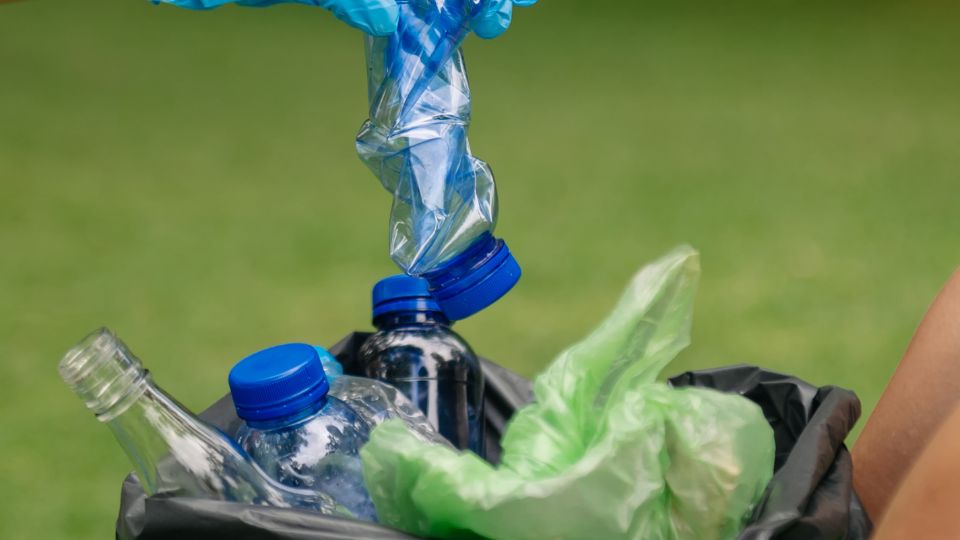
Benefits of Simpler Recycling legislation
For the Environment:
- Higher recycling rates reduce dependency on raw materials.
- Diverting food waste prevents harmful methane emissions.
For Businesses:
- A consistent framework makes compliance easier for multi-site operations.
- Improved recycling rates could lead to lower long-term waste management costs.
For Society:
- Less confusion for households and businesses leads to higher participation.
- Greater public awareness about sustainable waste practices.
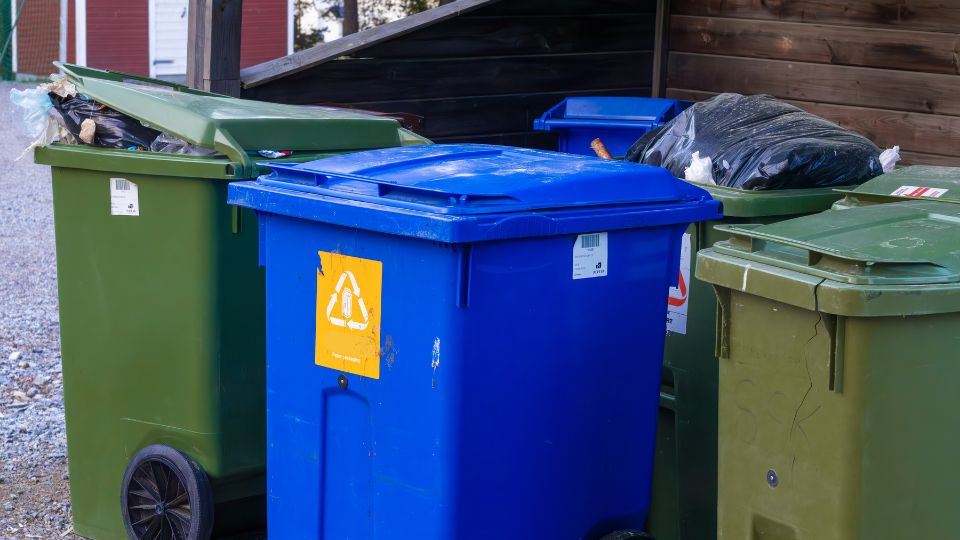
How to prepare for Simpler Recycling legislation
Audit Your Current Waste Management
Review your current waste processes to identify strengths and weaknesses.
Assess what materials your business generates, how waste is being disposed of, and whether recycling streams are being used effectively.
Look for areas where contamination or inefficiency may be occurring, and set actionable goals to address these gaps.
Invest in Infrastructure
Equip your business with the necessary tools to comply with Simpler Recycling.
This includes purchasing appropriate bins for separating recyclable materials such as glass, dry mixed recycling, and food waste bins.
Clearly label bins and position them in accessible, high-traffic areas to encourage correct use.
Educate Your Team
Proper recycling starts with your employees.
Offer training sessions or simple guides that explain which materials need to be recycled and how to separate them.
Visual aids like posters or bin labels can reinforce these practices and reduce errors, ensuring compliance with the new standards.
Partner with a Reliable Waste Broker
Simplify your transition by working with a waste management expert like Waste Managed!
A reliable waste broker can help you set up compliant systems, provide ongoing support, and ensure your business meets all Simpler Recycling requirements efficiently and cost-effectively.
Read more key updates in UK waste management for 2025 on our blog.









